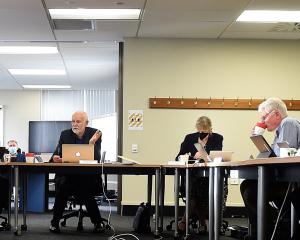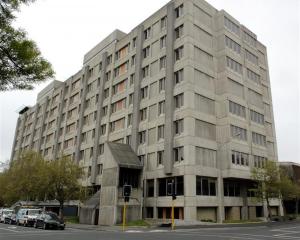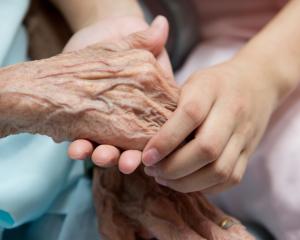The boards, which say they must reduce spending on housework help and residential care, say they may increase spending on day programmes for the elderly.
Regional chief executive Brian Rousseau said the fact there were relatively few day programmes for elderly in the South, yet more money was spent on "cleaning" than other regions, indicated the boards might not have the "mix" right.
Over six months, the boards plan to stop house-cleaning services to the elderly receiving only that service, other than the high-needs elderly, to save about $4 million a year.
"People shouldn't be relying on their cleaning service for their only social contact," Mr Rousseau said.
Regional planning and funding general manager David Chrisp said the DHBs were considering increasing spending on day programmes in the next financial year.
Figures presented to this month's Otago District Health Board meeting showed the 2008-09 spend in Otago on day programmes for people 65 and over was $8, compared to $17 nationally (75 and over, New Zealand $37, Otago $17). In Southland just $3 was spent on those aged 65 and over (75 and over $7).
"Day programmes provide another service for supporting people in the community. Arguably, if we had more, we would spend less on home-based support services," Mr Chrisp said.
Erin O'Rourke (79) who attends South Dunedin's twice-weekly Senior-Link day activity centre, which is not DHB-funded, said she would attend programmes "every afternoon" if she could.
Her "gregarious nature" demanded more activities and social contact than she could find. Keen on the arts, Miss O'Rourke said it became harder as one aged to stay involved in some interests and hobbies.
Over a game of Scrabble, she told the Otago Daily Times her one and a-half hours' home help from the ODHB looked likely to go in the housework cuts.
The change worried her. She looked forward to her home help person's visit to do all the "little things" she could not manage.
Robert Rogers (85), whose fee is paid by Work and Income, said he looked forward to his visits to the centre all week. He rarely left his home as impaired sight restricted his activities.
Senior-Link co-ordinator Geraldine Tait said if the centre was DHB-funded, it would get more referrals, and could probably open a third day.
The $20 day fee included transport, a meal, and activities.
The centre had been turned down for funding by the ODHB, which blamed budget constraints, she said.
Run by a charitable trust, the centre did receive some community grant funding.
The centre has three paid staff, who are supported by volunteers.
As well as Scrabble, activities included papier-mache, quizzes, word games, cards, and gentle exercise.
Lots of chatting and laughing accompanied every session, and some strong friendships had formed. The centre helped keep people's minds active, and was a buffer against loneliness and depression, Ms Tait said.
Of the seven accredited day-care programmes in Otago, two were in Dunedin (Presbyterian Support and Leslie Groves Resthome and Hospital), and one at the Mosgiel Elderly Care Trust. Southland had five funded programmes.











